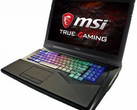One of the largest hurdles for virtual reality to overcome is screen resolution, or more precisely, pixels per inch (PPI). Early VR headset that had a low PPI could quickly induce side effects like nausea, headaches, and migraines in the wearer. Low-resolution headsets are also a barrier to immersion; if individual pixels in the image display inside a VR headset can be seen, it’s very hard (if not impossible) to trick the user’s brain into believing the image is real.
The current leading VR headsets, HTC’s Vive and the Oculus Rift, have pixel densities hovering around 450 ppi. While this is good enough for some users, others can still make out individual pixels. Samsung may be reconciling this problem through brute force; industry insiders have claimed that the Korean tech giant is working on a new standalone VR headset with a pixel density of 2,000 ppi.
An industry official has said that once ppi exceeds 1,000, problems like sickness disappear. While this may be true and higher resolutions will certainly help with immersion, there currently isn’t a display on the market close to hitting 1,000 ppi. But rumors are also flying that Samsung may be working on a new OLED panel that can meet and exceed this goal and will be much more responsive than traditional LCD panels (think ultra-high refresh rate).
As of now, these speculations are just rumors. We won’t know anything for certain until there’s an official announcement, but the future of VR is looking better and better every day.


 Deutsch
Deutsch English
English Español
Español Français
Français Italiano
Italiano Nederlands
Nederlands Polski
Polski Português
Português Русский
Русский Türkçe
Türkçe Svenska
Svenska Chinese
Chinese Magyar
Magyar














